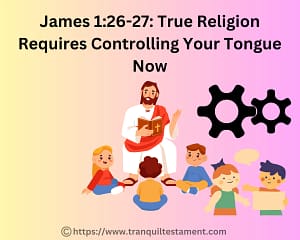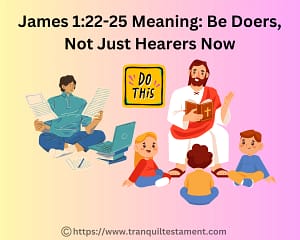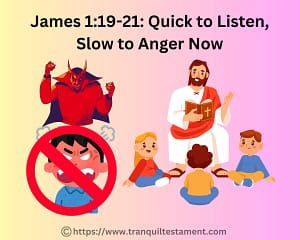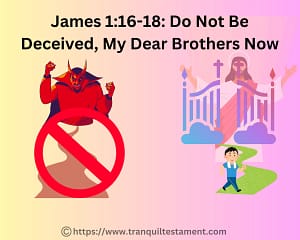Psalm 47: A Journey to Spiritual Enlightenment and Peace Now. Psalm 47 represents something that is too often neglected today – simple praise of God. This psalm, or song, is definitely a song of praise to God’s power and glory. Today, prayers usually involve petitions for help. Such requests are definitely scriptural and needed.
After all, God wants us to depend upon Him for everything. But, that is not to be the limit of our communication with our Lord. Praise and thanksgiving are also important. In many of the lives of the great men, and women of the Bible, the attitude of praise was always very real for them.
Often Paul, John, and the other writers, would begin to write down some teaching or principle from God, or something about what God had done, and immediately they would go off on a tangent of praise, because of the great gift He gave all humanity. You can feel the tremendous sense of joy these men felt as they considered the full revealing of God’s plan of salvation. Likewise, songs and prayers, of praise for God should certainly be part of a Christians’ life.
In verse one and two, the Psalmist wrote,
“O clap your hands, all peoples; shout to God with the voice of joy. For the Lord Most High is to be feared, a great King over all the earth.”
Clearly these verses were not describing a physical king of Israel or Judah. Instead, he described the Great King – God Himself – before his people. In the United States, it is hard to visualize and understand the honor that was given to a king or emperor.
Today’s kings and queens are little more than traditional figureheads within their respective governments. It is hard for people today to see the IMPORTANCE of the king. After all, this is a country “Of the people, by the people, and for the people”.
However, in the ancient world, the concept of the King was crucial to the well-being of the people. The health and prosperity of the land and people was directly tied to the king. If he were healthy, then the nation was seen as being healthy. If he was sick, or evil, then hard times would be experienced. The health of the king was as closely watched as the results of the stock market are watched today.
In verse two, the King James Version used the word “terrible” to describe the Lord God. The NASV, and other versions, use the word “fear”; “ For the Lord Most High is to be feared…” The attitude described here includes the idea of deep reverence and awe. His power and glory IS terrible to behold. More than once, people fell down in fear and awe of angels. How much more would that apply to God Himself!
For Christians, the ancient concept of the King does apply. The well-being and safety of each child of God is directly linked to the King of Kings – Jesus Christ. Only in Him can there be the hope of eternal life. In addition, there is one tremendous blessing that exists in Christ that did not occur with earthly kings. Jesus Christ never changes. He is the same yesterday, today, and forever.
For Christians, there does not have to be the constant worry about how “he” is doing. Jesus Christ does not have “bad days” like Saul had. He is never caught up in a murderous lust as David was for Bathsheba. He will never start out good then fall in the end as Solomon did.
Instead, Jesus Christ is Lord and King due to His sacrifice, His love, His purity, and His Godhood. It is through His name that all must be saved. Therefore, it is altogether fitting that God the Father and Jesus Christ His son and mankind’s Savior should receive praise and honor.
In verse 5 the Psalmist wrote,
"God has ascended amid shouts of joy, the Lord amid the sounding of trumpets".
In this passage, the Psalmist was not picturing a king of the Nation of Israel or Judah ascending up before the people. As corrupt and evil as some of the kings in the Old Testament may have been, they never publically proclaimed themselves as God. In the New Testament, as described in Acts 12:21-22,
Herod Agrippa I stood before a crowd and was proclaimed a god. But immediately, he was struck down.
Instead, this was a description of God. But for the Old Testament Jews, this may have been something of a mystery. How could God ascend? But from the perspective of the New Covenant, this passage could only be a prophecy pointing to Jesus Christ. The Son of God – God Himself – would first descend to earth and then ascend back to Heaven as recorded in the first part of the Book of Acts.
Now He sits at the right hand of God, and all power and authority has been given to Him. In Philippians 2:5-11, Paul wrote,
“Have this attitude in yourselves which was also in Christ Jesus, who, although He existed in the form of God, did not regard equality with God a thing to be grasped, but emptied Himself, taking the form of a bond-servant, and being made in the likeness of men. Being found in appearance as a man, He humbled Himself by becoming obedient to the point of death, even death on a cross. For this reason also, God highly exalted Him, and bestowed on Him the name which is above every name, so that at the name of Jesus every knee will bow, of those who are in heaven and on earth and under the earth, and that every tongue will confess that Jesus Christ is Lord, to the glory of God the Father.”
In spite of the dark predictions of “experts”, we KNOW that God is in control. The Son, the Lamb that was slain, rules; and we have been afforded the opportunity to be joined with the Living God for eternity. To God the Father and God the King, may all praise be given!







[…] that passage was shown both the great strength and weakness of the Nation of Israel. The psalmist was awed by the great defenses of the city. His […]